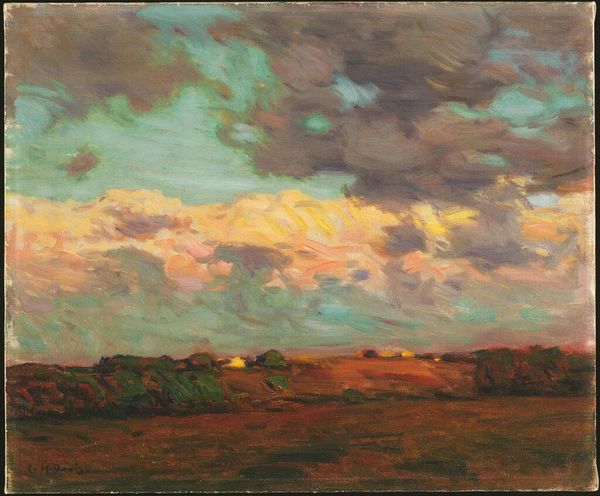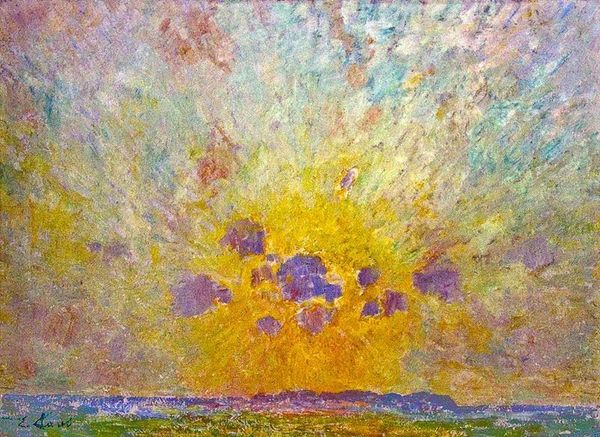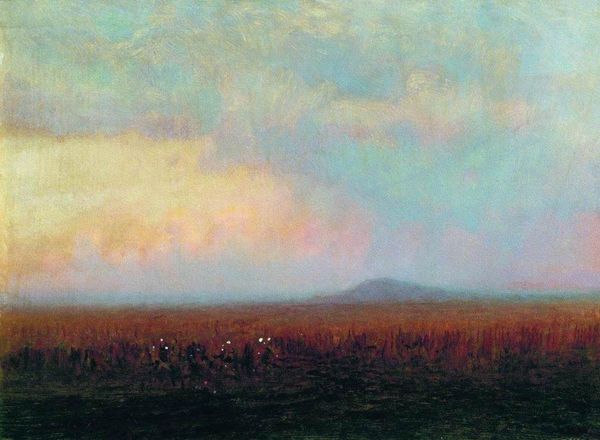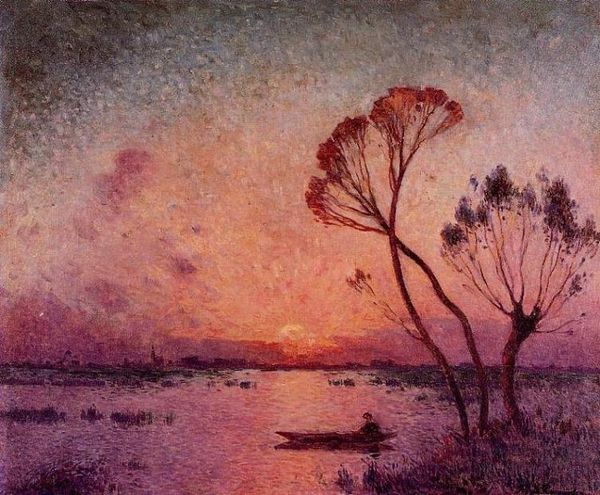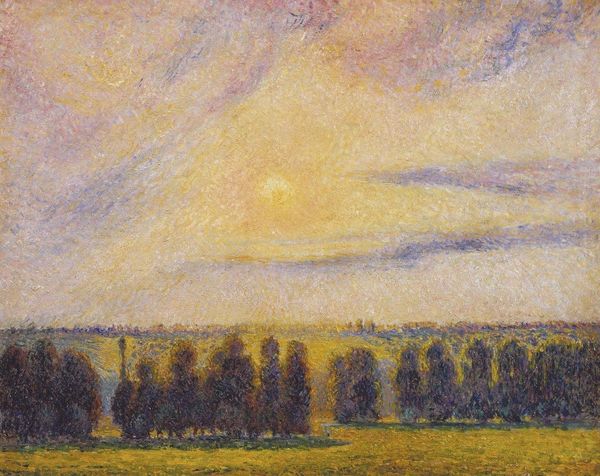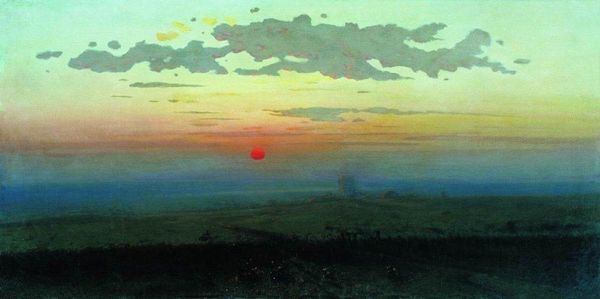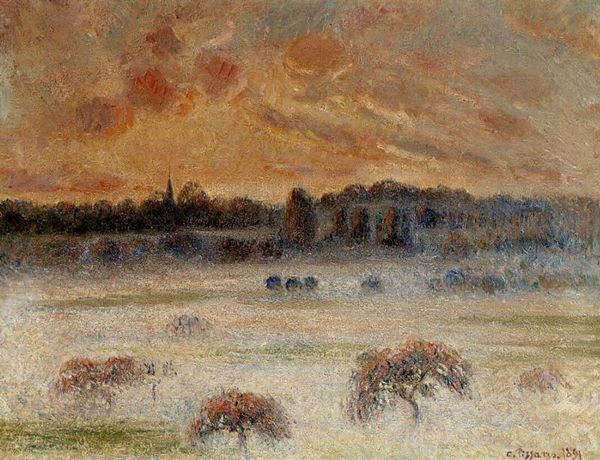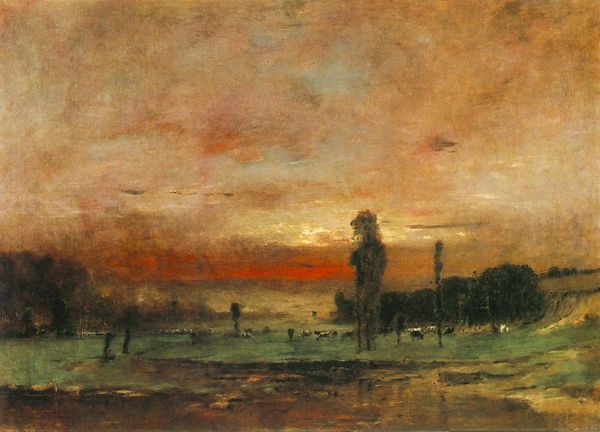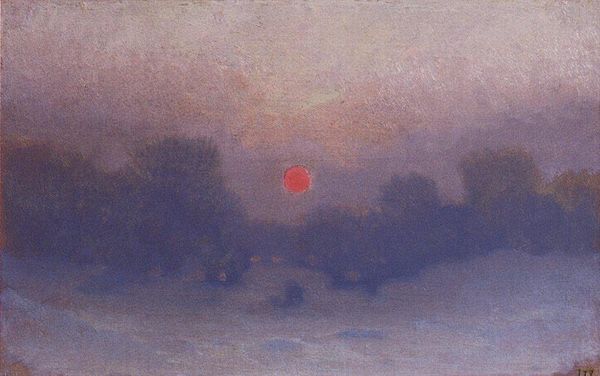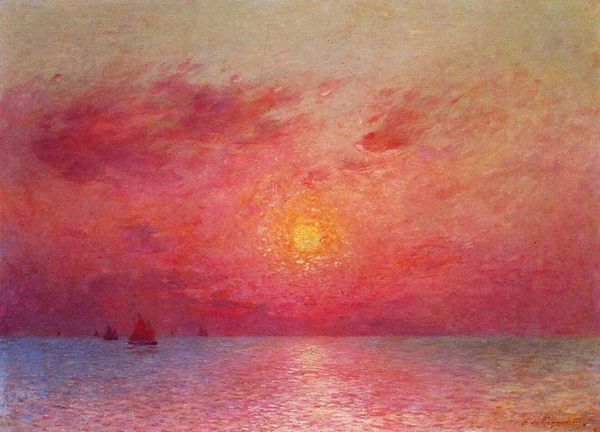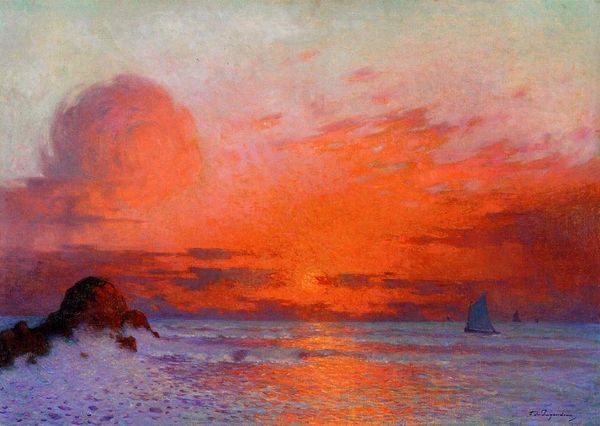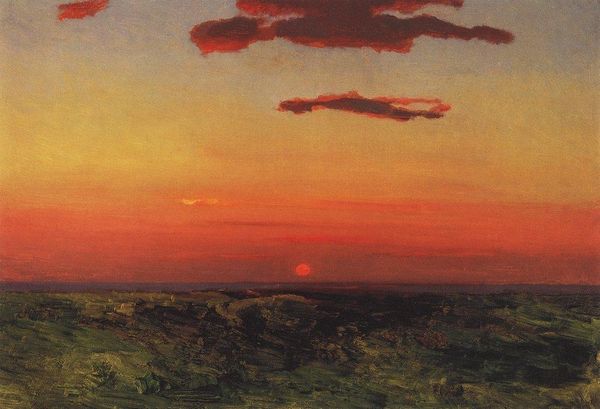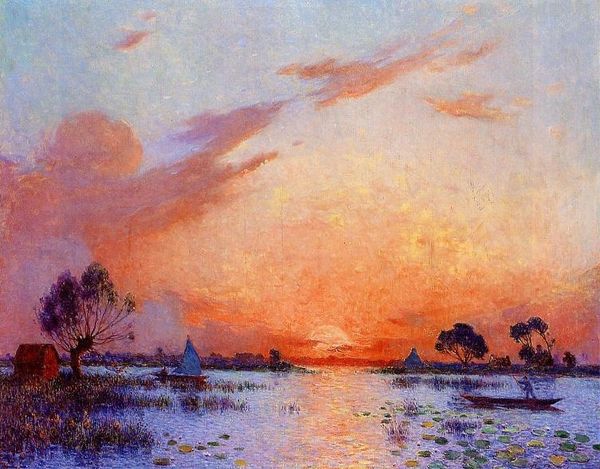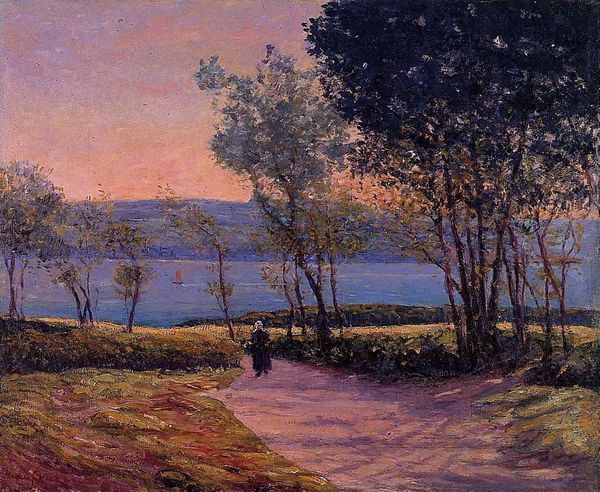
painting, plein-air, oil-paint
#
painting
#
impressionism
#
plein-air
#
oil-paint
#
landscape
#
impressionist landscape
#
romanticism
#
genre-painting
Copyright: Public domain
Editor: Here we have Ferdinand du Puigaudeau’s “Wheat Stack at Sunset,” an oil painting rendered with evident affection for the countryside. I am struck by the painting’s almost saccharine warmth, particularly the way the setting sun bleeds into the sky. What do you make of it? Curator: It's fascinating to consider Puigaudeau's painting within the broader context of late 19th-century French art. Impressionism, of course, elevated everyday scenes. But what does it mean when such scenes were specifically of rural labor and agricultural production? These depictions weren't always simply about capturing fleeting light; they could reflect anxieties about urbanization and idealize rural life during a time of great social change. Does the sunset romanticize labor? Editor: That's a great point. I was really taken in by the color and the mood, I did not considered that the representation of workers' daily routine could also be used in politics! Can you elaborate a little bit on the connection between painting and political statements at the time? Curator: Absolutely. Paintings like these presented an opportunity to promote certain values. Was rural life seen as more "authentic," "moral," or even "French" compared to the perceived corruption of the cities? How does idealization contribute to the erasure of the real challenges faced by rural communities? Or does it propose a more communitarian life opposed to modernity? These are questions to consider. Editor: This completely reframes my understanding of the painting. I will think more carefully on these socio-political elements of the painting. Curator: It's a wonderful example of how art serves not just aesthetic purposes, but can reflect, reinforce, or even challenge prevailing social narratives.
Comments
No comments
Be the first to comment and join the conversation on the ultimate creative platform.
